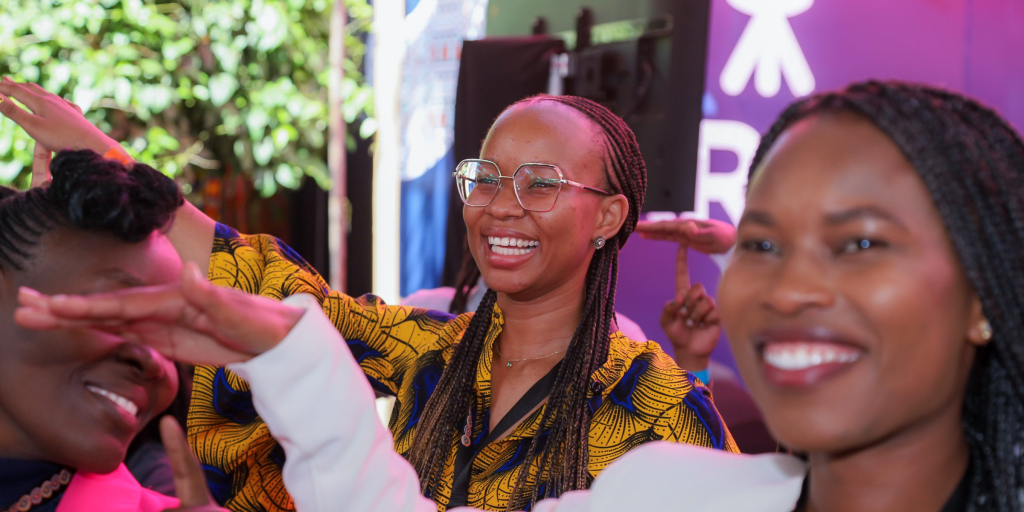AU convenes session on protection of journalists in conflict situations
PICTURE: Markus Winkler/Pexels
African Union
The African Union Peace and Security Council (PSC) convened its 1230th session focusing on the Protection of Journalists and Access to Information in Situations of Armed Conflicts in Africa on 2 September.
Churchill Ewumbue-Monono, Permanent Representative of Cameroon to the AU and chairperson of the PSC for the month of September 2024, delivered opening remarks. He was followed by Bankole Adeoye, AU Commissioner for Political Affairs, Peace and Security (PAPS).
It was anticipated that Ourveena Geereesha Topsy-Sonoo, Special Rapporteur on Freedom of Expression and Access to Information in Africa of the African Commission on Human and Peoples’ Rights (ACHPR) would make a presentation alongside Omar Faruk Osman, President of the Federation of African Journalists (FAJ), and Lydia Gachungi, UNESCO Regional Adviser on Freedom of Expression and the Safety of Journalists.
A representative from the International Committee of the Red Cross (ICRC) was also expected to make a statement.
This session – which would mark the first time the PSC was considering this theme – was to discuss the 10th anniversary of the International Day to End Impugnity for Crimes Against Journalists (IDEI). As would be recalled, the UN General Assembly adopted Resolution 68/163 during its 70th plenary meeting in 2013, where it decided, among other things, to ‘… proclaim 2 November as [that Day]’.
To commemorate this anniversary, the AU and UNESCO were jointly planning to hold a global conference in Addis Ababa, Ethiopia, from 6 to 7 November 2024 under the theme, ‘Safety of Journalists in Crises and Emergencies’.
Meanwhile, 28 September 2024 will mark the International Day for Universal Access to Information (IDUAI), as decided during the 74th UN General Assembly in October 2019. At its commemoration in 2021, the AU reiterated its commitment to promote the right of access to information despite challenges faced at all levels.
One of the entities that has carried out various initiatives for the protection of journalists and access to information within the framework of the AU is the Banjul-based human rights body, the ACHPR.
Consistent with the AU’s strategic plan, Agenda 2063 – specifically Aspiration 3 and 4 which speak of ‘an Africa of good governance, democracy, respect for human rights, justice and the rule of law’ – and Article 9 of the African Charter on Human and Peoples’ Rights, the ACHPR adopted the Resolution on the Safety of Journalists and Media Practitioners in Africa in 2020.
This Resolution builds on the ACHPR’s Declaration of Principles on Freedom of Expression and Access to Information in Africa.
This Declaration provides a framework for African countries as it contains principles for anchoring the rights to freedom of expression and access to information to Article 9, which guarantees individuals the right to receive information as well as the right to express and disseminate information.
The Model Law on Access to Information, which the ACHPR adopted in 2013, provides specific guidelines for African countries to fulfill their legal obligations under the African Charter regarding the right of access to information. Reports have indicated that, as of 2024, 29 African countries have adopted Access To Information (ATI) laws, while 26 others have yet to have such a law.
While journalists operating in conflict areas face inherent dangers, they are more vulnerable to direct violence as conflict parties seek to impose control on what is reported during conflicts.
Despite the provision of certain protections accorded journalists under International Humanitarian Law (IHL) – such as immunity from military attacks and Prisoner of War status for those accompanying armed forces – these protections are not always respected, and journalists continue to face a wide range of threats, including censorship, harassment and arbitrary detention.
Many have been killed, with recent reports indicating a rise in journalist killings in conflict-affected countries, reversing a previous trend of declining violence against media professionals.
Although countries in conflict are not among countries with the worst record in the treatment of journalists, situations in which incidents of violence against journalists have been reported include the Sahel (Burkina Faso, Mali, Mauritania, Niger and Chad), Cameroon, the Democratic Republic of Congo, Nigeria, Somalia, South Sudan and Sudan. (See the latest Press Freedom Index in Africa.)
Attacks and violence on media practitioners and journalists have also been reported in recent protests in Kenya, and a report from the Somali Journalists Syndicate (SJS) documented numerous violent attacks, threats, and instances of persecution against media workers in that country in 2023. Somalia is widely regarded as one of the most dangerous places for journalists.
It is worth noting that women journalists and women media practitioners face much higher levels of danger on account of the gendered nature of conflicts and crises.
Apart from compounding the already-small number of women media practitioners, [the] gendered nature of attacks has even greater adverse consequences in terms of giving voice to and capturing the disproportionately higher levels of dangers that women and girls are exposed to in conflict settings
In addition, there is the stigmatisation and stereotypical portrayal of women in conflict and crisis reporting, a lack of women-owned media, the underrepresentation of women in leadership roles, unethical reporting practices and a failure to engage with survivors of violence, especially women and girls.
During its 635th meeting held on 20 October 2016, the PSC’s theme, ‘The Role of the Media in Enhancing Accountability on Women, Peace and Security Commitments in Africa’, stressed the need for, among other things, ‘… media reporting to be context-sensitive, as well as to take into consideration existing gender and power relations’.
This was followed by the launch of the Network of Reporters on Women, Peace and Security jointly by the AU Commission and UN Women. This initiative was designed to recognise the media as a key partner in advancing the women, peace and security agenda.
The 1230th session would also take note of the growing challenges of misinformation and disinformation and hate speech in the context of new digital technologies, and the acuteness of these challenges in crisis and conflict settings.
In the same vein, the session was expected to reflect on the positioning, status and treatment of new forms of media created by bloggers, vloggers, influencers and myriad New Media actors in crisis contexts and emergencies
This remembers the August 2022 PSC session dedicated under the theme, ‘Emerging Technologies and New Media: Impact on Democratic Governance, Peace and Security in Africa’, which highlighted ‘the need for the AU Commission to comprehensively and systematically address immediate issues arising from emerging technologies and New Media’.
Those issues include the use of … New Media by actors engaged in terrorism and organised crime, the misuse of social media for the propagation of hate, and the use of such technologies for surveillance, repression, censorship, online harassment and orchestrating cyber-attacks
To this end, the session would request the AU Commission, in collaboration with relevant stakeholders, ‘to undertake a comprehensive study on emerging technologies and New Media and the impact on democratic governance, peace and security in Africa’. Further, to study ‘policy options available for harnessing the advantages, and for effectively addressing security threats associated with the use of these technologies in Africa’.
The session was also to examine prospects for an African Group of Friends for the Safety of Journalists, of which there is none, although there are GoFs around the world.
Six GoFs have been formed at the UN Secretariat in New York, UNESCO in Paris, the Office of the High Commissioner for Human Rights (OHCHR) in Geneva, the Organisation for Security and Co-operation in Europe (OSCE) in Vienna, the Council of Europe (CoE) in Strasbourg and the Organization of American States (OAS) in Washington.
The expected outcome of the AU PSC session would be a communiqué in which the PSC may express concern over the plight of journalists and other media practitioners in active conflict situations. In this regard, it may stress the important role that the media can play as an agent of peace through factual and professional reporting.
The PSC may commend the rich jurisprudence and elaboration of soft laws on freedom of expression, access to information and the protection of journalists by the ACHPR, and urge AU Member States to draw on and respect these soft laws and the decisions of the ACHPR.
This could contribute to the achievement of Agenda 2063 and the goal of Silencing the Guns in Africa by 2030.
The PSC may also call on Member States which have not yet done so to ratify the AU Convention on Cyber Security and Personal Data Protection (also known as the Malabo Convention as it was first signed in Malabo, Equatorial Guinea) of 2011. The Malabo Convention is the most binding regional treaty in Africa for protecting personal data.




